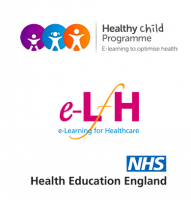Prevention Strategies



Since some high-profile cases, agencies that deal with young people have an increased responsibility to work with each other to prevent substance misuse. This session outlines some of those responsibilities and suggests ways to identify young people at risk of substance misuse and put in place prevention strategies.
Learning Objectives
By the end of this session you will be able to:
- List the predictive factors for substance misuse in young people and the factors that protect them
- Define the links with mental health and well-being
Every Child Matters (2003) established the vision that every child should be able to reach their potential.
The misuse of drugs is known to have adverse effects for young people on both a short-term and long-term basis.
The aim of this session is to help you to be able to predict which young people are likely to misuse drugs and manage their treatment.
- Identify the primary and community partners to engage and seek advice from
Wendi is a registered sick children’s nurse with a BA (Hons) in health and community studies and a BSc (Hons) in specialist nursing practice (community children’s nursing). She is currently working with the Department of Health on primary care for children and young people.
In the Cheshire and Merseyside Child Health Development Programme, Wendi is Strategic Development Lead and Business Manager and deputises for the Chief Executive. She is also Child Health Mapping Lead for the North West and links with the Comprehensive School Improvement Plan (CSIP) on specific pieces of work across commissioning and self assessment.
Her role includes acting as project lead within the Child Health Development Programme for the National Children’s Bureau and she is Chair of the GP network for Cheshire and Merseyside.

- End of Life Care | Advance care planning | Advance...
- Posted By eIntegrity Healthcare e-Learning
- Posted Date: 2025-01-13
- Location:Online
- This session focuses on principles of good practice which underpin the appropriate and valid use of Advance Decisions to Refuse Treatment (ADRT), within an end of life care context. This session was reviewed by Fiona Rawlinson and Sarah Hanrott and last u
- End of Life Care | Advance care planning | Advance...
- Posted By eIntegrity Healthcare e-Learning
- Posted Date: 2025-01-13
- Location:Online
- This session builds on the principles of advance decisions to refuse treatment. It focuses on the practical steps involved in supporting patients requesting the development of an advance decision. This session was reviewed by Fiona Rawlinson and Sarah Han
- End of Life Care | Advance care planning | ACP in ...
- Posted By eIntegrity Healthcare e-Learning
- Posted Date: 2025-01-13
- Location:Online
- This session describes how the Preferred Priorities for Care tool may be used to facilitate advance care planning. This session was reviewed by Fiona Rawlinson and Sarah Hanrott, and last updated in February 2023.
- End of Life Care | Advance care planning | ACP and...
- Posted By eIntegrity Healthcare e-Learning
- Posted Date: 2025-01-12
- Location:Online
- This session provides an overview of the concept of illness trajectories and its influence on the advance care planning (ACP) process in end of life care. This session was reviewed by Fiona Rawlinson and Sarah Hanrott and last updated in February 2023.
- Acquired Brain Injury course
- Posted By eIntegrity Healthcare e-Learning
- Posted Date: 2025-01-12
- Location:Online
- This session will outline the causes and effects of acquired brain injury (ABI) in childhood. It wil...








